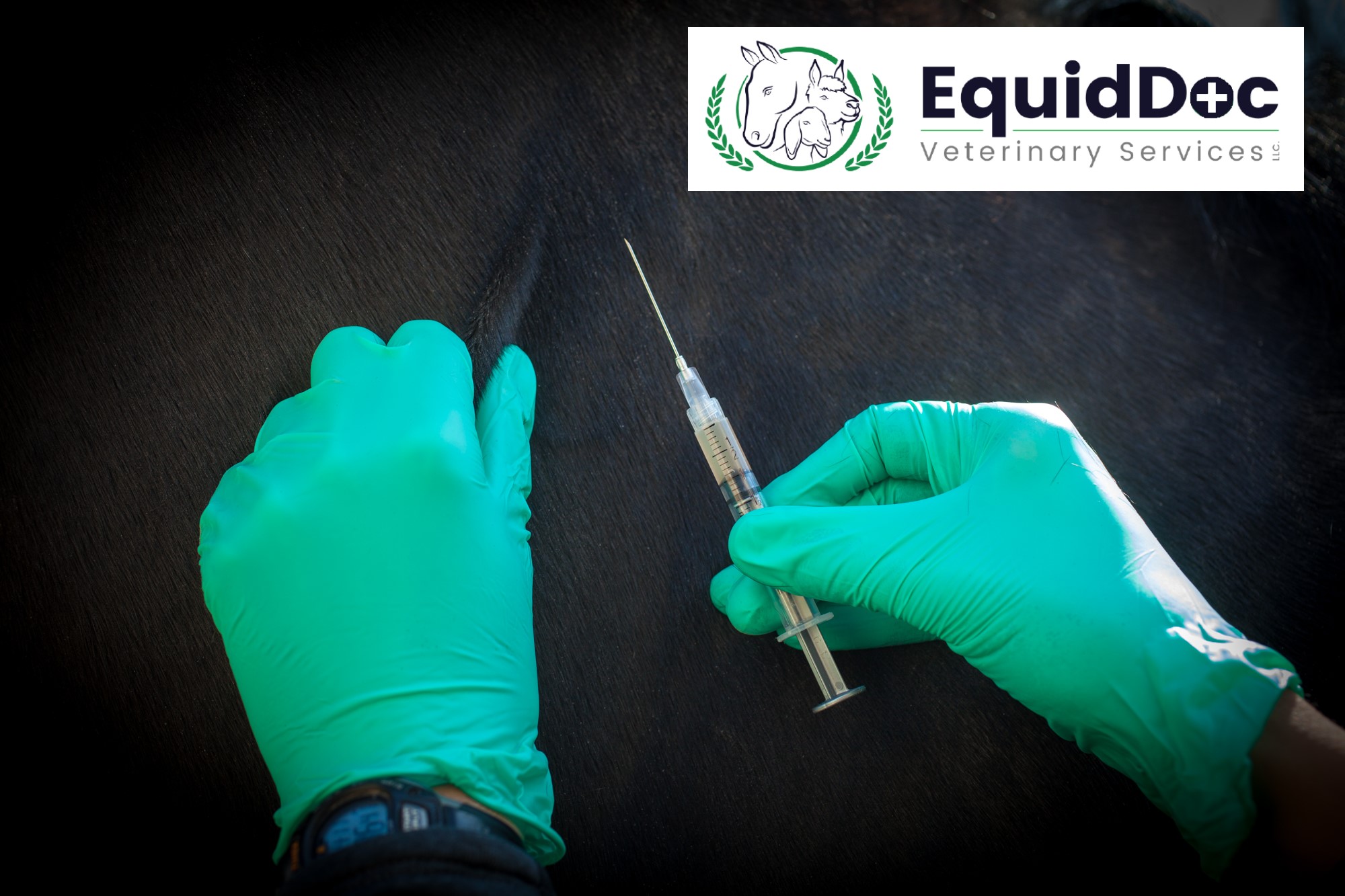Vaccination is an integral part of preventative medicine in all animals. Vaccines induce an immune response, or the creation of antibodies, that allows an animal to fight off a virus or bacteria when they are exposed to it again later. Currently, vaccine protocols for adult horses, foals, and pregnant mares are well established and effective. At this time testing for antibody titers (levels in the blood) in the horse is not accepted in place of annual vaccination and more research is required to ensure safety for you and your horse. After the initial booster series, most vaccinations are administered once or twice a year. Vaccines administered annually are usually given in the spring in New England before bug season arrives and before most major equine activities begin.
Core vaccines are those that protect against diseases all horses are susceptible to, regardless of lifestyle or environment, i.e. diseases your horse could catch while living in the backyard! These diseases include Rabies, Tetanus, and the mosquito-borne diseases (Eastern Equine Encephalitis (EEE), Western Equine Encephalitis (WEE), and West Nile Virus (WNV)). Rabies is endemic (always present) in the wild mammal population in our area and annual vaccination is important to protect people from this fatal neurologic disease. Tetanus is caused by the bacteria Clostridium tetani, found in the soil which can contaminate wounds and surgical sites. Horses are especially sensitive to Tetanus and should be vaccinated once yearly, and a booster should be given if a horse sustains a cut or puncture wound more than 6 months after their last vaccination. West Nile Virus, EEE, and WEE are viruses that circulate in mosquito populations in New England from early summer until late fall (sustained frost). The prevalence of the disease can vary from year to year, but horses are always at risk and these neurologic viruses are usually fatal or require extensive and expensive supportive care.
Risk-based vaccines are those that protect against diseases horses may only be exposed to in certain environments. Risk-based diseases include Influenza, Equine Herpesvirus, Streptococcus equi (“Strangles”), Potomac Horse Fever, Botulism, and many others. All horses that live at boarding stables, have contact with other horses frequently, or travel often, are pregnant or are young (<4 years old) should be vaccinated for Influenza and Equine Herpesvirus (abbreviated “Flu/Rhino”) every 6-12 months depending on activity levels. Some diseases are specific to certain geographies such as Potomac Horse Fever, or nutrition such as botulism. Other risk-based vaccines protect pregnant mares from diseases that cause abortion. Your horse’s lifestyle, breeding plans, and travel schedule should be discussed at length with your EquidDoc veterinarian to determine the need for risk-based vaccination.
Vaccination should always be performed by your veterinarian. EquidDoc selects specific brands and types of vaccines for their safety and effectiveness and ensures the vaccines are handled properly from the manufacturer to your horse. Vaccines purchased over the counter or from online pharmacies may not always be handled or stored properly. In addition, your veterinarian should be involved in helping select what vaccines are needed for each individual horse. EquidDoc also performs a physical exam before any vaccine is administered to make sure your horse is healthy enough to handle the immune system stimulation produced by the vaccine. Call EquidDoc today to schedule your vaccination appointment 508-885-4205; or if you have any questions regarding individualized vaccination programs.

